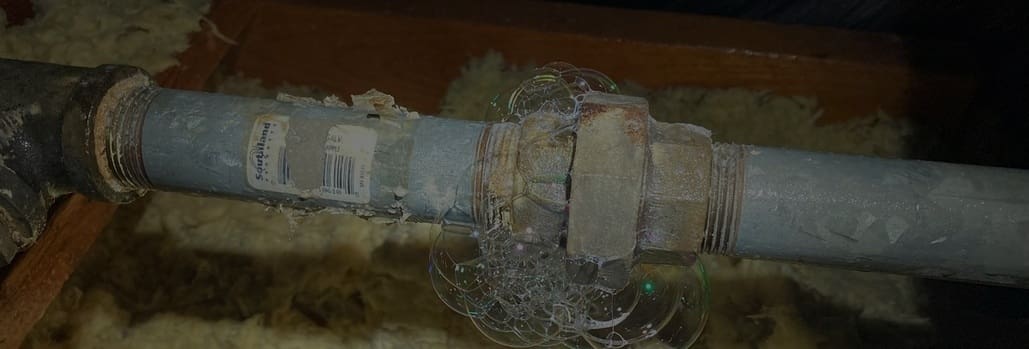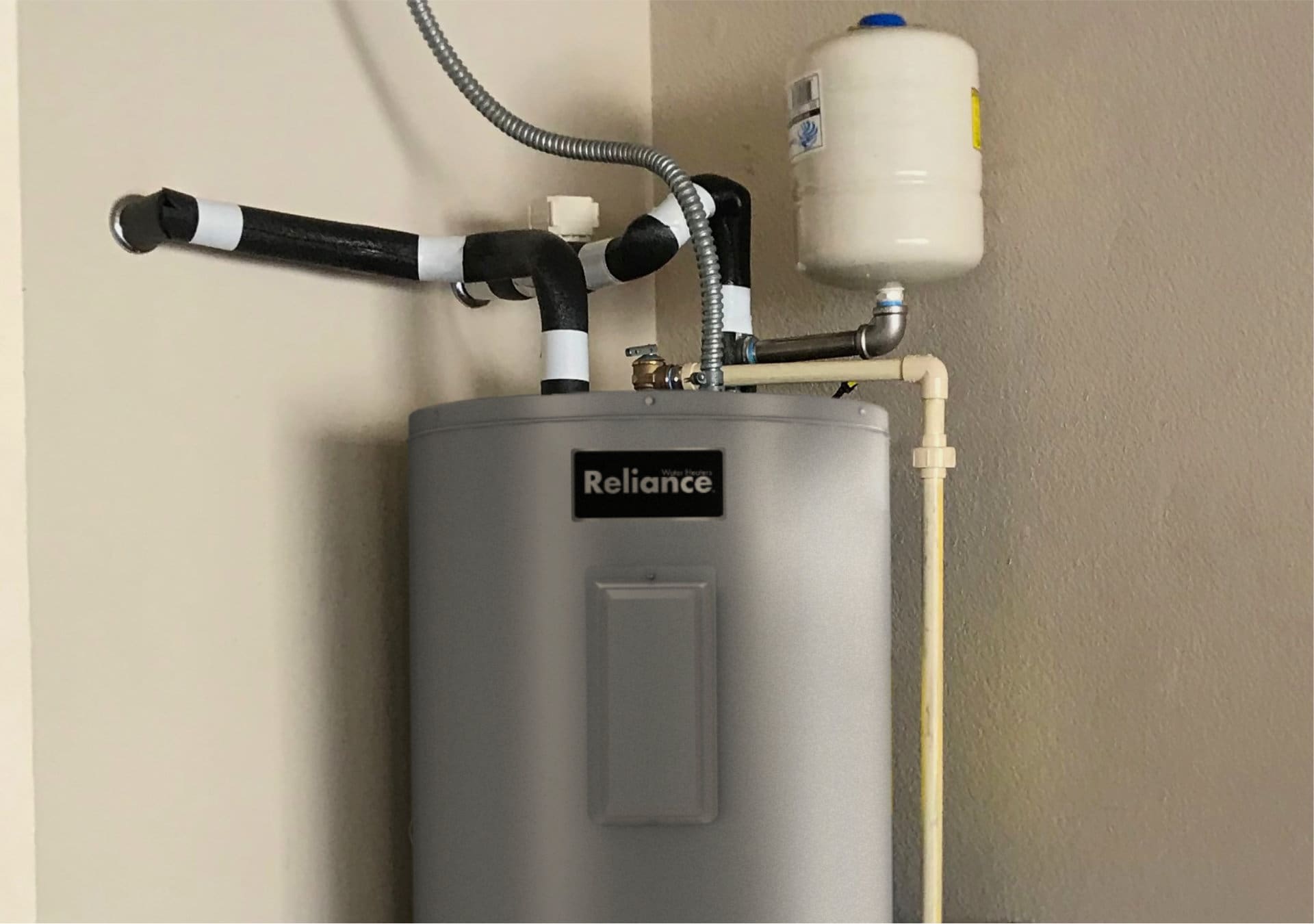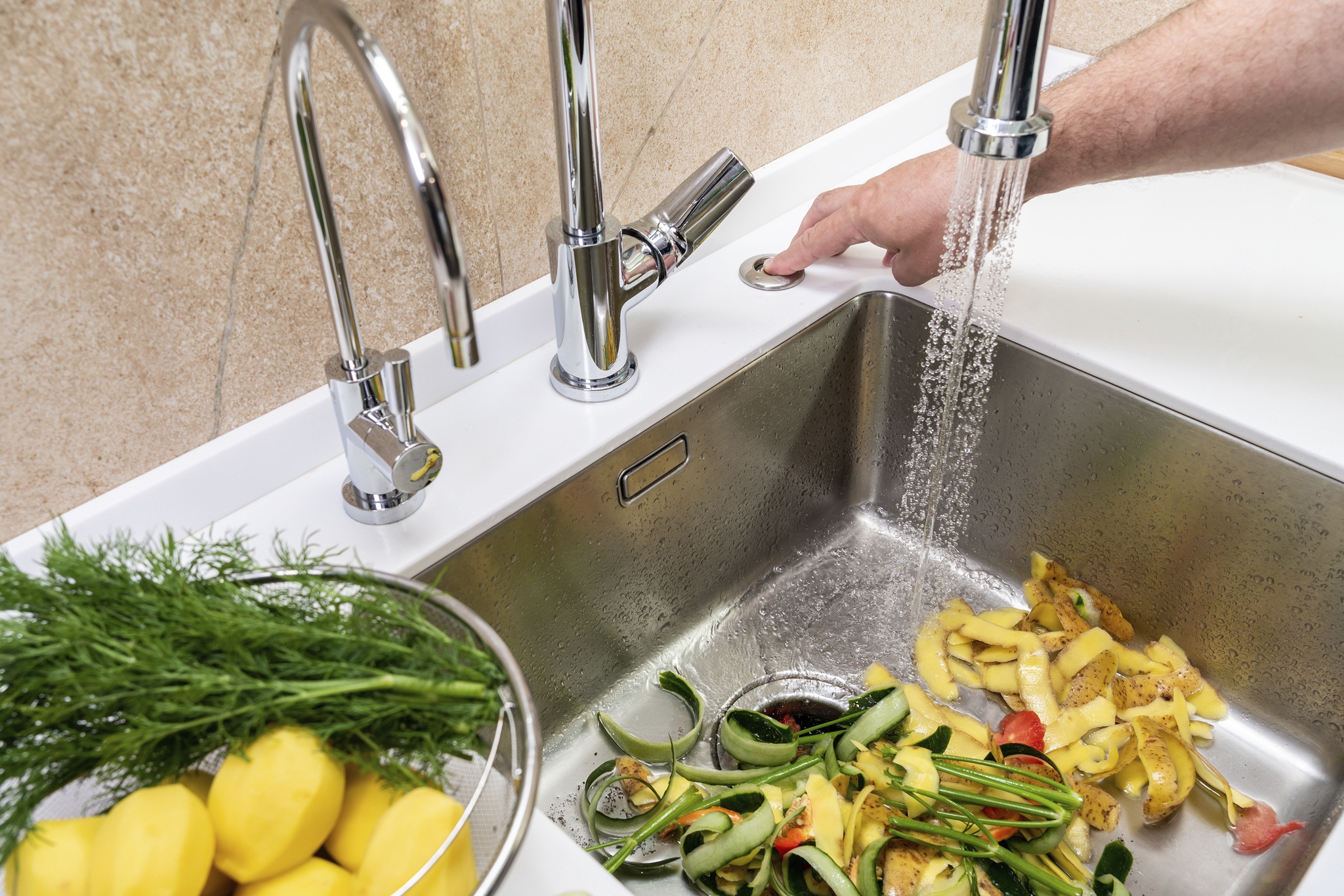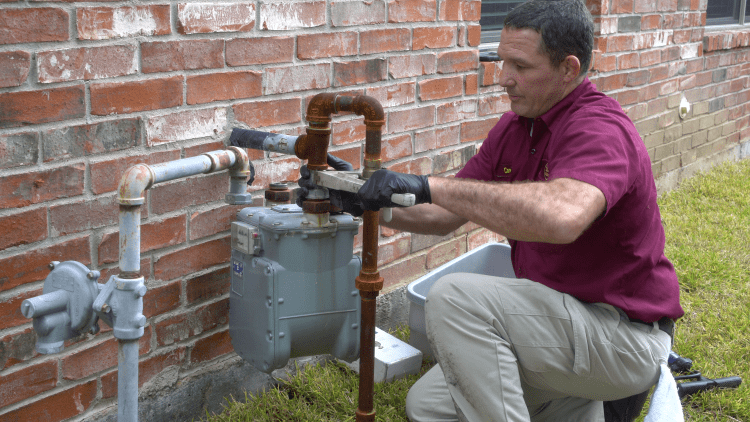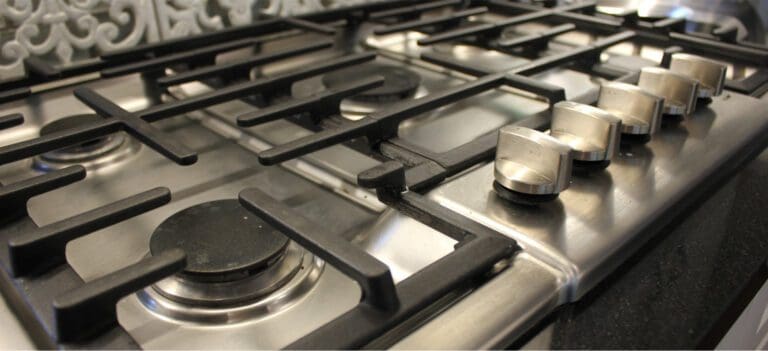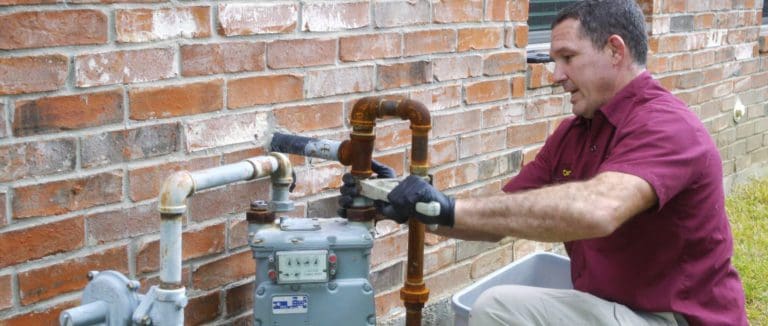Gas leaks are both dangerous and very common in many homes across Texas. Incidences involving gas piping leaks and explosions result in an average of 17 deaths a year in the U.S. (Reference)
Fortunately, it’s not too complicated for a professional to fix most gas leaks in your home. Catch the leak early, and deal with it quickly to keep your home safe. In this article, you will find valuable information about finding a gas leak and an overview of what to do after you’ve found it.
Here is what you should know.
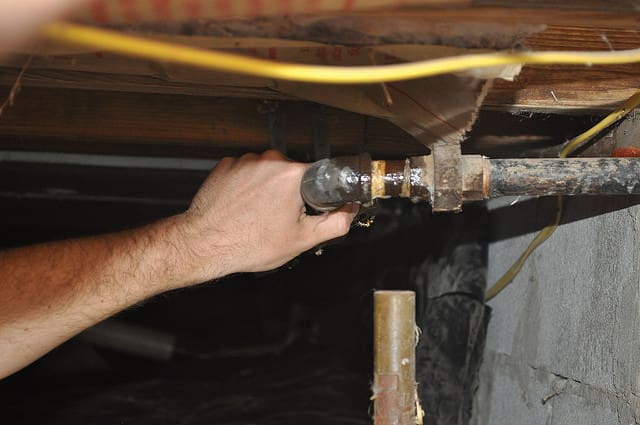
Common Places For Gas Leaks
There are several common places where gas leaks occur in the gas line system.
It is much more likely for a gas leak to occur where pipes join together at the fittings: old shut off valves, tees, unions, flexible supply lines, regulators, and risers. If these connections are not tight enough or get disturbed, leaks can occur.
We also often find leaks where “black iron” piping is not properly protected from the elements. This piping is not inherently very corrosion-resistant and needs to be prevented from staying wet. If this pipe is buried in the ground without protection, it tends to rust away until it starts to crumble. This is especially common right at the ground level where it gets consistently hit by string trimmers.
Many gas leaks happen after a new roof is installed. Corrugated stainless steel lines (CSST) on newer homes can easily be punctured by roofing nails when the line has been installed too close to the roof. Sometimes the leak is evident immediately, and other times it can take months for the leak to appear.
If your roof has been replaced, it could be worth a visit from a plumber to check the gas lines if you have a CSST system. The plumber can also check the vent piping on top of your water heater to make sure it is properly attached to the heater. (This protects you from carbon monoxide.)
Checking For Gas Leaks
If you think you may have a gas leak (but aren’t sure), there are several signs that you can look for either to confirm or deny your suspicions.
Before natural gas is distributed to homes, it is mixed with a very strong-smelling sulfur compound that smells something like rotten eggs. If you have a gas leak, you’re probably going to smell it pretty quickly. If you smell a strong sulfur odor near any gas pipes or gas appliances, that is strong evidence of a gas leak near there.
If you smell what seems to be gas inside the home, look for gas appliances and gas piping in the vicinity. Is there a gas fireplace nearby? An outdoor grill on the other side of the wall? A water heater?
If the smell is outside, you may even notice dead grass. If your gas line has leaked underground for long enough, it could even have caused the grass above it to die.
Any information you gather can help reduce the time it takes for your plumber to locate the leak, (which will save you money in labor costs).
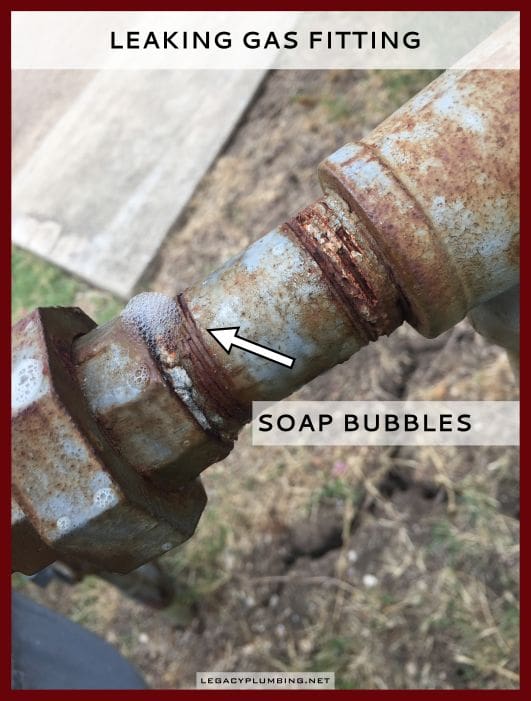
What To Do If You Have A Gas Leak
There are several things to remember should you encounter a gas leak in your home. You should know where your gas shut off valves are and how to operate them in case of an emergency. If it is a minor leak, your plumber may be able to repair the leak and get your gas back on that day depending on what is leaking.
If the smell of gas is overwhelming, leave the house immediately and contact your local gas professionals to shut off the gas. Always use a licensed and insured plumber to make sure the job is done correctly and safely.
- Do not use a cell phone, open a garage door, or operate an electric switch.
- Never smoke or have an open flame in the area of a gas smell.
- Do not start a vehicle in the area of the leak.
Be aware that if the gas company shuts your gas off, you may be without gas until the leak is repaired, tested, and inspected by the city inspector. This could take days, a major inconvenience, especially during the winter.
Always use caution with gas! Gas leaks can be dangerous, and they are common issues in many homes. Make sure you are prepared to protect your family and property. Again, always use a professional to repair the leaks. Most experienced plumbers are qualified and know how to repair gas leaks in your home.
Who Repairs Gas Leaks
Usually, plumbers and gas company professionals make repairs to gas lines. Gas companies are responsible for leaks on their side of the meter, and homeowners are responsible for leaks typically from the meter to throughout the house. If you smell gas on your property, it is most likely a plumber that will need to repair it.
Gas companies in North Dallas will not repair gas lines owned by the homeowner. At that point, it becomes your problem and your liability.
Normally, when a professional plumber arrives, they will ask the “who/what/when/where” questions to minimize time locating your leak. If it is a major leak, they may shut off the gas immediately. They will then conduct proper testing to locate the leak.
This could include pressurizing the line with air, soaping down all exposed fittings, isolating lines, accessing lines in the wall, and excavating lines underground.
Once the leak is located, they should be able to give you a price for the repair that is needed and set a possible timeframe for repairs and inspections.
More Questions?
Hopefully, this gives you a little more information on what to do and what to expect if you have a natural gas leak at your home or office. If you live in Frisco, Plano or within Legacy Plumbing’s service area, give us a call with questions. We would love to help you out over the phone, if possible. Again, if the smell of gas is very strong, treat it like the emergency that it is and call 911 and your gas company immediately.
Contact Legacy Plumbing if you suspect a gas leak, or if you need assistance with any residential repairs or light commercial plumbing. We are here to help.







